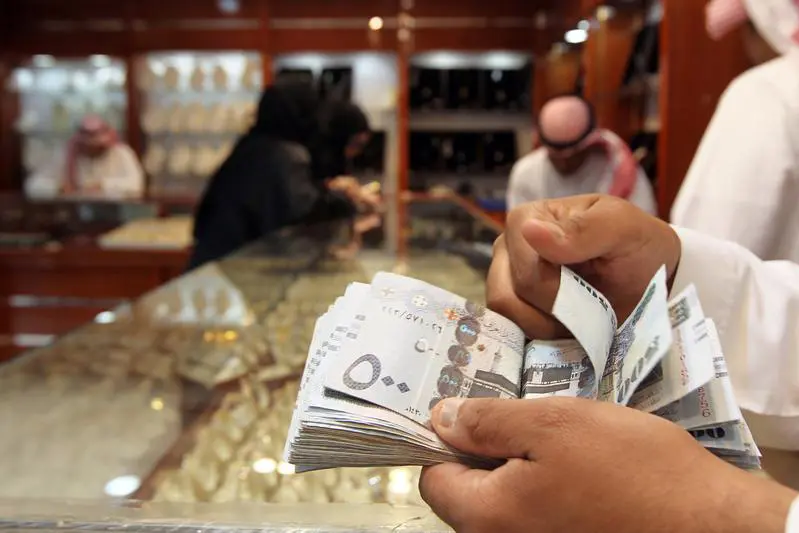PHOTO
New regulations are set to expand international investor access to Saudi Arabia next year, when a landmark move allowing full foreign ownership of key retail and wholesale businesses takes effect.
The changes to the rules, which will create an exception to the current 75% cap on foreign ownership across several industry segments, are expected to bring an influx of new entrants to the Kingdom, as well as additional training and technology transfer opportunities.
Drafted by the Saudi Arabian General Investment Authority (SAGIA) with the Ministry of Commerce and Industry and announced in September, the new regulations should also accelerate the construction of new floor space, on the back of an anticipated rise in demand from foreign players drawn to the Kingdom's large domestic market with growing connectivity to the wider GCC region.
"Allowing foreign investors to own 100% of certain businesses is a measure that will benefit everyone," Abdullatif Al Othman, governor of SAGIA, told OBG. "For investors, they will have access to a large population, where demand for retail goods is growing. For the Kingdom, working with key retailers and wholesalers will contribute to our mission to diversify the economy, while also providing quality jobs for nationals and stimulating knowledge and skills transfer."
Market significanceGaining greater access to Saudi Arabia is an attractive proposition for international retailers, as the Kingdom has the largest economy and widest consumer base in the GCC region. The country's retail market is currently valued at around SR750bn ($200bn), according to media reports, and is on track to double over the next five years.
Despite forecasts of slower growth in 2015 and 2016, with GDP growth expected to fall to 2.8% and 2.4%, respectively, according to the IMF, before averaging 3% over the medium term, the country boasts a young and increasingly well-educated population that currently numbers around 30m.
The reform also comes at a time when consumer spending power in Saudi Arabia is on the rise. According to a recent report by management consultancy Hay Group, salaries in the country increased by an average of 4.5% this year. With inflation at around 2.6%, this represents a 1.9% boost in real spending power. The businesses surveyed expect salaries to rise by another 5% next year, further increasing spending capacity.
Added benefitsWider foreign participation could see up to SR10bn ($2.7bn) in investment channelled into the retail industry in the year after the restrictions are eased, according to regional media reports.
The move is also expected to improve competitiveness in the marketplace, with the emergence of new brands paving the way for more affordable products in key segments, trimming prices by as much as 20% for some goods.
Boosting spaceThe changes in the regulations will also result in higher occupancy of retail space, which is likely to drive up rental costs in existing malls and other outlets.
In a report issued in early October, property consultancy JLL noted that the regulatory changes are expected to have a significant impact on real estate, with the effects being felt already, particularly in terms of rental space.
"Sentiment in the retail market and demand for retail space among international retailers continues to strengthen in light of the SAGIA's decision," Jamil Ghaznawi, national director and country head of JLL Saudi Arabia, told press in early October.
According to JLL, demand for space and rents in both cities is expected to rise as a result of the regulatory changes.
A January study by investment bank Alpen Capital suggested the Saudi market is primed to absorb a wider retail offer. The Kingdom remains relatively underserved in terms of modern retail space, according to the bank, with less than 1000 outlets in total, suggesting there is significant scope for expansion.
With overseas investment in retail expected to rise and levels of per-capita retail space among the lowest in the region, Saudi Arabia could be set for a boost in new construction over the medium term.
In Riyadh an additional 44,000 sq metres of high-end retail space are already set to come on-line in the fourth quarter of 2015, adding to the existing stock of around 1.4m sq metres and helping to alleviate upward pressure on rental rates. Meanwhile, in Jeddah, significant new floor space is also expected in 2016, including at Yasmin Mall, which will add over 58,000 sq metres of gross leasable area.
Fine printAlthough signalling new opportunities for some investors, the regulatory changes will still place limits on certain foreign retailers licensed to operate in the Kingdom.
While companies that produce and retail their own products will be able to take advantage of the 100% ownership rule, the restrictions will still apply to firms that market a broad range of goods and work with several suppliers, as well as those that do not necessarily manufacture their own goods, such as supermarkets.
Retailers will also be required to provide details in their licensing application, including manufacturing plans, proposed technology transfer and targeted employment of Saudi nationals in highly skilled technical and managerial positions, underscoring the Kingdom's insistence on investment that adds local economic value.
© Oxford Business Group 2015





















